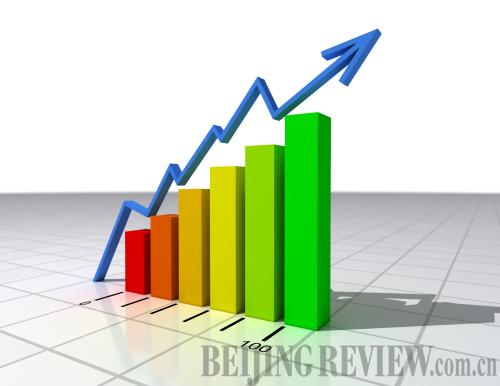| 
GEELY PROFITS SOAR
China's Zhejiang Geely Holding Co. saw its revenue soar to 14.1 billion yuan ($2.06 billion) in 2009 from just 4.29 billion yuan ($628.11 million) a year earlier. The Chinese automaker is seeking to increase profit by offering more expensive models domestically and selling 50 percent of its cars overseas by 2015. The Geely group is also buying Volvo Cars for $1.8 billion from Ford Motor Co. and plans to invest $900 million in the struggling Swedish automaker. It aims to complete the deal in the third quarter of 2010.
IRON ORE SHIPPING DEAL
Hyundai Merchant Marine, South Korea's second largest shipper, in partnership with China's Hebei Steel Group (HSG), has signed a deal worth $315 million to ship iron ore for the next 15 years. The deal commits Hyundai Merchant Marine and China's ShangDong Far East Marine Group to deliver a total of 23 million tons of iron ore to HSG in China by 2025, the company said in a statement. This includes 1.5 million tons annually from Brazil and Australia. HSG is the world's second largest steelmaker.
CHINA'S GREEN INVESTMENT
China has shifted into top place on the list of countries investing in clean energy, according to a report published by Pew Charitable Trusts, a think tank based in the United States. The nation's investment in clean energy, such as solar and wind technology, rose to $34.6 billion in 2009. The United States came in second on the list, spending $18.6 billion.
FOREIGN BANKING SHRINKS
A China Daily report says assets of foreign-funded banks in China accounted for 1.71 percent of total assets of financial institutions in China at the end of 2009, pointing to a decline for the second consecutive year. China Business News quoted the president of one foreign-funded bank, who says foreign banks cannot compete with domestic banks when it comes to traditional banking services because their market share is so low and they have fewer branches. The report finds that foreign banks are better off focusing on cash management services, trade financing and investment banking businesses. It also suggests they should take advantage of their overseas branches to provide services to Chinese companies aiming to go global.
ONE-OFF TRADE DEFICIT
March saw China post its first monthly trade deficit in six years. The deficit was mainly the result of an increase in import volumes and rising commodity prices. Exports reached $112 billion for the month, up 24 percent year on year, whereas imports rose by 66 percent to $119 billion, leaving a trade deficit of $7.2 billion, according to the General Administration of Customs (GAC). Huang Guohua, director of the statistical analysis department at GAC, predicted the trade balance would normalize once seasonal factors ease and the effects of foreign investment and trade take over.
OVERSEAS INVESTMENT
The State Council, China's cabinet, released new regulations in April on overseas investment, according to a report by the state news agency, Xinhua. According to the new regulations, China still welcomes foreign investment in hi-tech industries, service sectors, energy-saving and environmental protection. However, polluting and energy-sapping enterprises or projects in industries running at overcapacity are discouraged. China will also continue to support Chinese A-share listed companies to introduce more strategic investors from home and abroad, and standardize foreign companies' investment in domestic securities and corporate merger and acquisition moves.
WONDERLAND FOR IPO
One hundred and nine companies issued their Initial Public Offering (IPO) in China during the first quarter of 2010. To put this into perspective, that number accounted for a staggering 41 percent of the 267 IPOs offered worldwide, according to a report by Ernst & Young. The revenue gained through IPOs in China made up 37 percent of the $53.2 billion raised globally. During those three months, the exchanges in Shanghai and Shenzhen (China's A-share markets) saw 92 IPOs worth a total of 118.6 billion yuan ($17.38 billion), about 60 percent of the 187.9 billion yuan ($27 billion) raised in the whole year of 2009.
INDEX FUTURES UNVEILED
Official trading in China's index futures, the Chinese mainland's first financial futures product, began on April 16 at the China Financial Futures Exchange in Pudong in Shanghai. China Financial Futures Exchange is believed to be making efforts to develop itself into a risk management center for the whole Asia-Pacific region. According to Leo Melamed, the globally recognized founder of financial futures, China's first foray into index futures is a major step of China's move toward a market-driven economy.
NUMBER CRUNCHING
11.9%
Growth rate of China's economy in the first quarter of 2010
$22 billion
China's investment to construct fiber optic broadband network in the next three years
33
Number of cities in China that participated in the Earth Hour Event 2010
14%
Growth rate of China's copper consumption in 2010, forecast by CRU International Ltd.
20Mb
Target bandwidth of broadband service fully covering Beijing Internet users by 2012 |